The Tibetan refugee who turned spy for China in Sweden
It was just before lunch on a Monday in February 2017, when Tibetan refugee Dorjee Gyantsan (多吉坚参) stepped off a ferry from Poland in Nynäshamn, Sweden. The then 49-year-old began, like most other passengers at this key port city of Sweden, the short walk from the port terminal to the nearby station for the commuter train, which takes its passengers up to Stockholm in just about an hour. Dorjee never made it to the train, as he was instead surrounded by agents from Sweden’s Security Police (SÄPO). The abruptly whished Dorjee off to Kronobergs häkte, the largest detention center in Sweden, located right in the heart of the posh neighborhood and island of Kungsholmen in Stockholm.
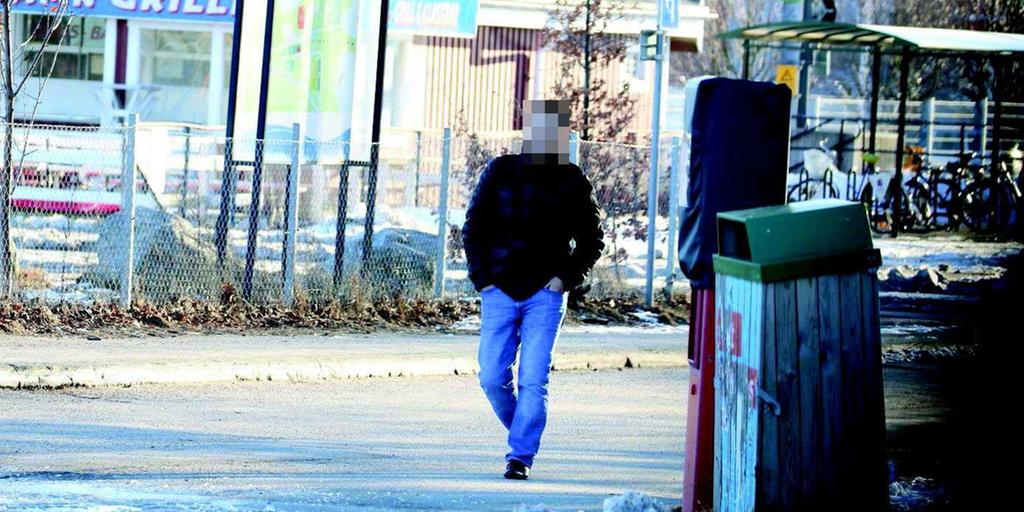
Credit: Göteborgs-Posten
Days later he was arrested without bail; SÄPO arguing that if he was set free it would jeopardize their investigation into what would turn out to be a serious espionage case. In 2018, Dorjee was sentenced to 22 months for spying on Tibetans in Sweden for China.
How did someone who escaped from Chinese persecution turn his back on his own people and Sweden, his adopted home country, and become a spy for China?
We take a deep dive into Dorjee’s June 2018 trial and what we could find about how China’s Ministry of State Security (MSS) recruit informants and agents overseas to try to answer this question. We also examine a similar case, that of Babur Maihesuti from the Uighur minority who was also convicted of spying for China years earlier. Interestingly, Babur and Dorjee shared the same MSS handler.
--
Dorjee fled to Nepal from Tibet in 1997 after taking part in a protest calling for greater autonomy for Tibetans. He was a real refugee. In Nepal, he changed his name to Dorjee Gyantsan to reflect his Tibetan ancestry on his mother’s side. He had previously been named Abdul Ma, after his father who was a Hui Muslim. After many years in Nepal, he was granted refugee status by the UNHCR and offered asylum in Sweden. In 2002, he moved to Stockholm to begin his new life.
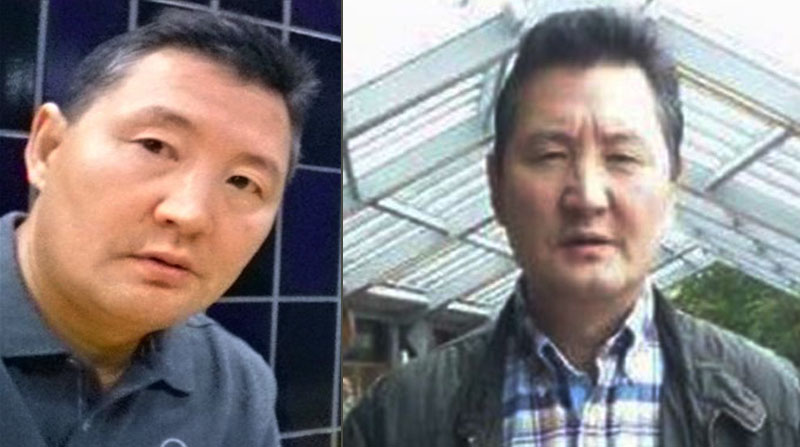
Credit: The Tibet Post
Dorjee’s trial in 2018 offers up significant information about his spying as well as MSS operations running such agents. While much was classified, what was released to the public domain paints an intriguing picture.
Based in Stockholm, Dorjee operated across Sweden for the MSS. His first contacts with them dated back to 2008, although the prosecution focused only on the period 2015 to 2017. Dorjee would collect intelligence for the MSS on Tibetans living in Sweden including their living situation, family, and travel plans. He would also interact with the Tibetan community in nearby countries, such as Denmark, Norway, and Poland.
He kept two mobile phones. One for general use and the other only for communicating with his handler, Lei Da. Lei would ring Dorjee on that phone. Dorjee would let it ring and then respond to Lei on a different, pre-arranged, number. The two never met in Sweden. Instead, they would meet in Finland and in Poland, where Lei worked as a secretary at the Chinese Embassy in Warsaw for the last decade or so.
When Dorjee was first apprehended, Lei was immediately recalled back to China.
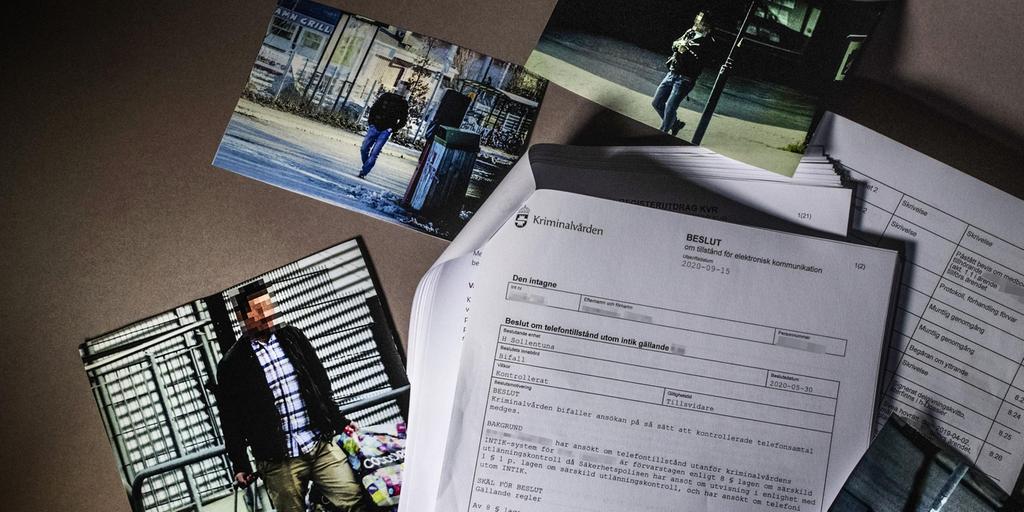
Credit: Göteborgs-Posten
It was incompetence on the MSS’ part that led to Dorjee’s downfall, and that of its agent-runner in Warsaw. In 2009, Swedish police arrested Babur, who was then in 2010 convicted for spying for China. During that investigation, Lei’s phone had been identified and tapped. Lei never changed his number and used it for his contacts with Dorjee. Just by looking at the phone number, SÄPO could begin to suspect that the MSS was recruiting another spy in Sweden.
Dorjee said he first met with some who identified as a “China Daily journalist” in 2009 who approached him at a Tibetan gathering in Sweden after spotting him reading an article about the Dalai Lama. Court records on most of these activities are sealed, and available records simply show that this might be the same man he meets on trips on the popular Sweden-Finland ferry over the course of 2013 to 2015. A known MSS agent was at the time based out of the Chinese embassy in Helsinki. Dorjee was not charged with any crimes relating to this period.
From 2015 onwards, Dorjee began making regular trips to Poland, also traveling by ferry. He would make 14 trips over a two-year period to meet with the Lei Da, who then claimed, or so Dorjee says, to have been a student in Warsaw.
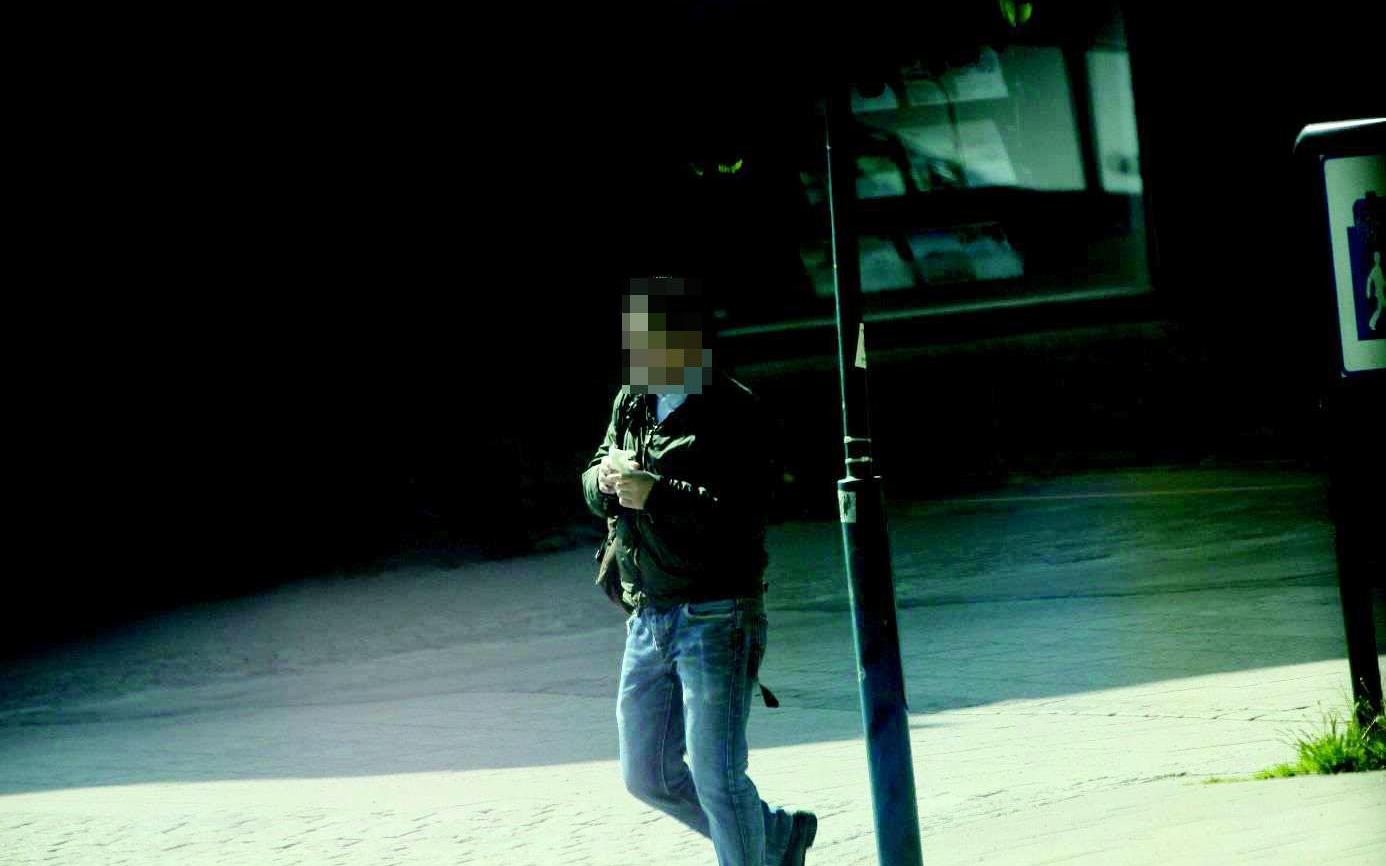
Credit: Göteborgs-Posten
With help from the Polish government, SÄPO was able to track Dorjee’s movements including meetings with Lei Da at the embassy in Poland and also their many phone calls.
Dorjee denied meeting regularly with Lei Da and also denied that he was a spy. He also said he did not know that Lei Da was an MSS agent, or connected to the Chinese government in any capacity.
Below is a transcript from a phone call between Lei Da (who Dorjee calls Mr. Wang) and Dorjee on 19 March 2016, just nine days before Xi Jinping’s arrived in the Czech Republic for a state visit. It is likely that many MSS agents, spread across embassies around Europe, were making similar phone calls across Europe.
Dorjee: Yeah? Hello?
Agent Lei Da: Yes, hi. Old man Wang, can you talk?
Dorjee: Yeah, it’s alright, it’s fine, I’m at home.
Agent Lei Da: Good, good. I mostly want to ask about one thing; can you help me a little bit these days, to check if there are any people over there with you, or here with me [in Poland], around here I mean, if there are any monks or others that will be going down to the Czech Republic in the near future?
Dorjee: Oh. Eh, monks?
Agent Lei Da: Yeah, monks, or other people that are going to go to the Czech Republic in the near future. If you can check around a little over the next few days. Or, like this; if you are not sure, could you do a guess or something, that is OK too, and write down some names and look around a little – how many they are, exactly which days, that is, which days they would go, and if you write… too many names is a but complicated, not so clear, so if you write them on a paper and take a photo, could you send me? Is that ok?
Dorjee: Oh, what’s it called… so you want photos too? Photography?
Agent Lei Da: No, but if you take a photo and send me it become an image file, and then it becomes a bit clearer. You can write name, roughly how many they are, and dates – three is enough.
Dorjee: Ah, and then send to mobile. On the mobile? I will check, I… I…
Agent Lei Da: Yeah, send as a message, that will work.
Dorjee: OK ok, I will check. The next few days? The next few days, then?
Agent Lei Da: Yes, the next few days. Eh, before Tuesday would be good. Do your best on your end and find out about this, and if there is anyone you can think of that might go, that is, maybe going to go, write down that person’s name also, try to find out how many that are going to go.
Dorjee: OK ok. So, did you get the SMS that I sent? The one about the booked time?
Two days later, Dorjee did indeed send Lei Da an SMS response, in which he said that no one he knew was planning to go to the Czech Republic.
Court records date the first phone contact between Dorjee and Lei Da to 23 July 2015 and their first face to face meeting five days later in Poland.
Computer and financial forensics established that Dorjee received regular cash deposits into his Swedish bank accounts, which coincided with his trips to Poland. Sniffer dogs identified packages of medicine that Dorjee brought back on his trips as having contained bank notes. When he was arrested, he had 6,000 USD in cash on him. In one of the tapped phone calls, he told Lei Da that an earlier payment given to him on another Poland trip had been lost. In addition, the payments tracked from 2014 were irregular, coincided with his trips to Poland or information provided over the phone, and some were processed through exchange services.
Ferry trips, passing international waters, offered lots of gambling - blackjack was Dorjee’s favorite - and equally lots of booze, and these popular ferry rides were seemingly a way for the MSS to approach potential spies, both the ones to Finland and the ones to Poland. Dorjee said he regularly took the ferry by himself and with other Tibetan friends. He said he met lots of Chinese people on these trips. The relaxed environment apparently was an ideal setting for Chinese agents to sniff out targets. Dorjee meets a Chinese man gambling onboard the ferry. It’s not certain if this man is Lei Da. They gamble together, discuss business opportunities in India, and their common cultural heritage. Dorjee meets him three or four times on the Sweden-Finland ferry and later met him in Finland too.
Dorjee says that on one of his many ferry trips to Poland, he met two Chinese Buddhists, one of whom he stays in touch with. That man, who calls himself Cho Li, turns out to be a “friend” of Lei Da. Prosecutors allege that the other “Buddhist” is Lei Da himself. Dorjee says his (Lei Da) name was Zhao Wang and that he told him he was a student in Warsaw and a follower of the Dalai Lama.
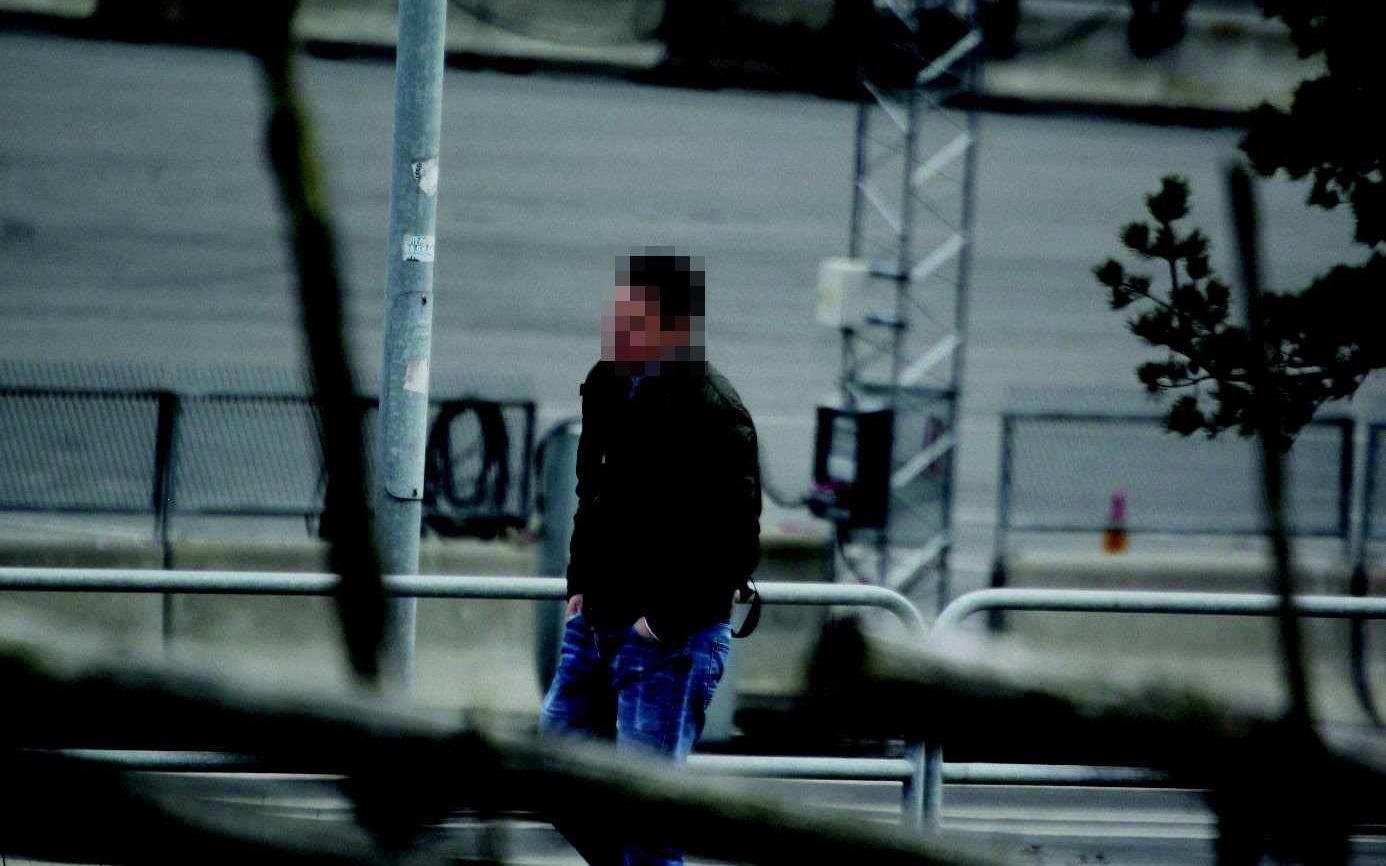
Credit: Göteborgs-Posten
Over time, Dorjee established a network of Tibetan and Chinese friends and acquaintances in Poland. On at least one occasion, he and some of his “friends” visit a brothel in Poland. Court documents show Dorjee in contact with at least three different MSS Officers over the years, the main one being Lei Da, but one of the others being a higher MSS official, possibly Lei Da’s boss. There’s no other information on this boss to show where he was based, as several sections of the court documents are classified. Very likely, this more senior officer was in charge of spy operations involving refugees over a larger area of Europe.
Dorjee’s case, and expert testimony from SÄPO, shows that Chinese spy operations in Sweden are now all conducted from outside the country, unlike the earlier case involving Uighur refugee spy Babur Maihesuti. SÄPO noted that this is a recent development and a move to try to avoid detection.
Throughout the years Dorjee managed to make himself part of the small Tibetan community in Sweden, one largely based in our around the capital, Stockholm. The community, just shy of 160 people, including children, is largely focused around the community organization Tibetan Community in Sweden. Even though Dorjee was never an official member, he would often help out at cultural gatherings for the community. People in the community have spoken about Dorjee as being inquisitive, but the small size of the community left few people with any worry that the MSS would spy on it – not even after the arrest of Uyghur spy Babur. Jamyang Choedon, the then head of the community organization, told Safeguard Defenders that most everyone was shocked by his arrest, and about the fact that a spy had been placed in their midst.
Dorjee was at that point not considered particularly politically active – he’d always be around for cultural meetings, or meeting related to visits by the Tibetan government in exile, but would never attend any of the demonstrations organized, often at the Chinese embassy. No one seems to have thought about it at the time, but Dorjee’s wife and his two children almost never attended any of the activities organized for the community’s children either. Dorjee, one of few in the community speaking both fluent Tibetan and Mandarin, would often have a role to play in activities that involved both Tibetans and Chinese, such as a dialog on Tibet-China relations organized in Stockholm in 2008. At these meetings, Jamyang Choedon says no one had any idea that for example the person claiming to be a China Daily journalist, or anyone else, was actually from China’s MSS or any other State agency.

Credit: RFA
Unlike with Uyghur spy Babur, who was used by the MSS, and run by the same MSS agent runner, to infiltrate the World Uyghur Congress, and to get close to its leader, Rebiya Kadeer, there was no obvious high-level target for Dorjee, although he did have some interaction with Voice of Tibet, a radio station based in Norway. However, through his role close to the Tibetan community organization, he did get access to the Tibetan community in Norway, about 80 people strong, and in Denmark, with about 100 members, as well as in Poland, as the organization would occasionally arrange activities bringing them all together. Finland, known for its tough immigration and refugee policies, is estimated to have perhaps less than a handful of Tibetans and were rarely involved.
Of Dorjee’s activities, and work, prior to his espionage, little is known; he is thought to have met his wife after his arrival in Sweden, and had a child, living in Stockholm.
After Dorjee’s arrest in 2017, president of Tibet’s government-in-exile Lobsang Sangay told RFA that it “is concerned about this [spying] and is closely following the situation,” adding “Not even a small Tibetan community in Sweden is spared by the Chinese government [which attempts to undermine them] through various methods and financial temptation.”
The court found Dorjee guilty of spying and described his crime as “severe” and stated, “China is a totalitarian great power with significant resources used, partly, to oppress Tibet and Tibetans”.
After this release from Mariefreds prison in central Sweden on 14 May 2020, SÄPO placed him into custody immediately, remanded him to Sollentuna häkte, one of Sweden’s newest detention centers, just north of Stockholm, and requested his expulsion from the country on the ground that he was a threat to Sweden’s national security. He was not allowed to go home to his family, a wife, and two children. After the Swedish Migration Board and High Court of Migration agreed in July and September, respectively, Sweden’s Home Minister approved Dorjee’s expulsion for life on 22 October. However, because of his status as a UNCHR refugee under Swedish law, there are legal hurdles to sending him back to China. Meanwhile, Dorjee remains in custody awaiting his fate and what may be prolonged legal wrangling.
Most of the Tibetan community in Sweden still has relatives or family in Tibet, and the revelations have rocked the community, as the purpose of such refugee espionage is specifically to silence such an exiled community, often via both explicit and implicit threats to family or loved ones still back in their home country, whom Chinese police can go after in retaliation.